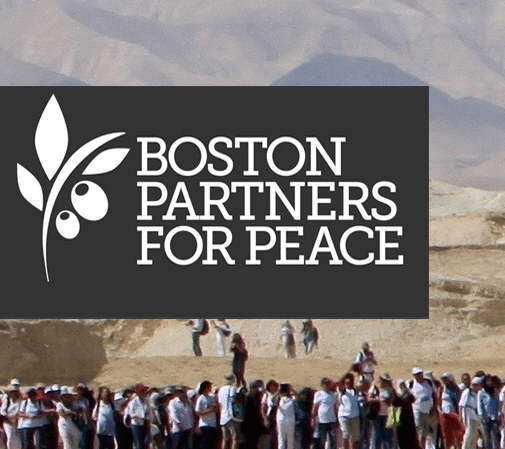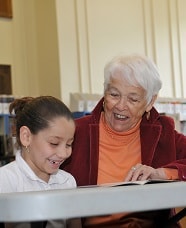The following is an excerpt from my remarks last Thursday at JCRC Celebrates…
At JCRC we like to speak of big, noble values like “our national purpose rebuilding the homeland of the Jewish people” or “defending the norms of Western democracy,” or “tikkun olam.” And right now, it can be too easy to become paralyzed by big ideas when facing the seemingly overwhelming nature of the challenges in our world and in our country.
But rather than do nothing, we look to Jewish tradition to provide us not only with a mandate for big noble ideas like the urgency of taking care of our own and of others, but also with practical wisdom about how to set about achieving this seemingly impossible task – and maybe more important – a strategy for warding off the paralysis of despair.
The Torah offers a concept (elaborated on by the Rabbis) of a circle of responsibility, where our greatest obligations are to those closest to us. This hierarchy reflects our most human impulses – to prioritize those with whom we are most proximate; our families and those whom we love. But the Torah also tells us that our obligations do not stop there. The circle of responsibility includes our neighbors, our cities and towns, and ultimately expands to encompass all of humanity.
If our circle begins with our own Jewish community, it expands to include all those who share our great Commonwealth. Through our relationships with those to whom we are proximate, those we draw near, we learn of action we can take right here and right now, that has impact on the lives of those we’ve grown close to.
So, rather than be paralyzed by the reality of 12,800 migrant children in federal detention right now, we at JCRC have organized 18 synagogues in 4 Sanctuary networks supporting a variety of families. With our Christian partners, we’ve mobilized 600 volunteers to support 160 people in detention, provided accompaniment at 170 court hearings, and – raised over $100,000 to bond out 32 people being held in federal detention who are awaiting hearings – all right here in Massachusetts.

Rather than be paralyzed by a sense of despair over the prospect of a two-state solution 25 years after the signing of the Oslo Accords, we at JCRC have started Boston Partners for Peace. In partnership with CJP, we’re changing the conversation in Boston about coexistence. Through connection to Israeli and Palestinian success stories, we’re offering hope as an alternative to despair and inviting our community to work for the future in a proactive and positive way here in Boston.
Rather than by paralyzed by global hostility to Israel, we at JCRC mobilized a broad network of our member agencies, our allies, and our community in Cambridge this spring to defeat an effort to make the boycott Israel movement into city policy. We made visible the unseen community of support in that city. And then, in the state’s new Economic Development Bill, we worked with our friends on Beacon Hill to guarantee $250,000 for the facilitation and support of the Massachusetts-Israel Economic Connection to pursue economic collaboration between Israel and the Commonwealth.
Rather than be paralyzed by rising anti-Semitism and concerns about Jewish security, we worked with a network of Jewish agencies to advocate successfully for Governor Baker to reconstitute the state’s Hate Crimes Task Force. Then we worked with our partners in the legislature to establish a nonprofit security grant pilot last year, which was doubled to $150,000. Real money for institutions in our community and other communities at risk.
And we do work every day through Service – work that cultivates our proximity with others and nurtures the connections and shared community that reflect our Jewish values: mobilizing more than 1,200 volunteers each year in ongoing and one-day opportunities. Through 68 partners in the Jewish community and 134 service sites across the region, including 25 public schools, we’re doing the work of being proximate with our neighbors.
connections and shared community that reflect our Jewish values: mobilizing more than 1,200 volunteers each year in ongoing and one-day opportunities. Through 68 partners in the Jewish community and 134 service sites across the region, including 25 public schools, we’re doing the work of being proximate with our neighbors.
As Rabbi Joseph Soloveitchik, the “Rav” & founder of Brookline’s Maimonides School taught us:
During the Yom Kippur services, our prayerful concerns are almost exclusively with our own people…We are often accused of being parochially clannish. This may be true, for otherwise we would have succumbed long ago, considering our historical vulnerability. But this self-involvement is not hermetically exclusionary. The universal emphasis is prominent in all of our prayers, in Scripture, the Talmud and the Midrash;
It is (therefore) characteristic of the universal embrace of our faith that as the shadows of dusk descend on Yom Kippur day, after almost 24 hours of prayer for Israel, the Jew is alerted through the book of Jonah, prior to the closing of ‘the heavenly gates’ (Ne’ilah) that all humanity is God’s children. We need to restate the universal dimension of our faith.
Shabbat Shalom,
Jeremy


